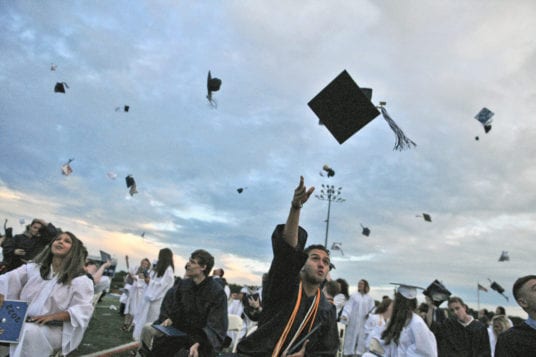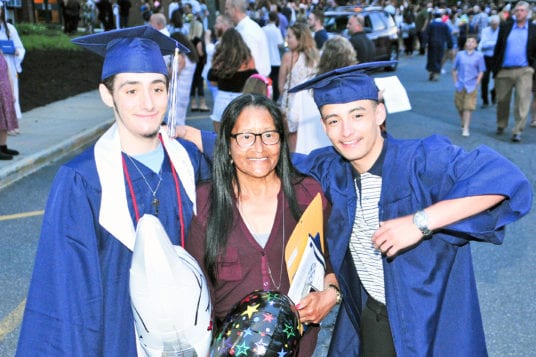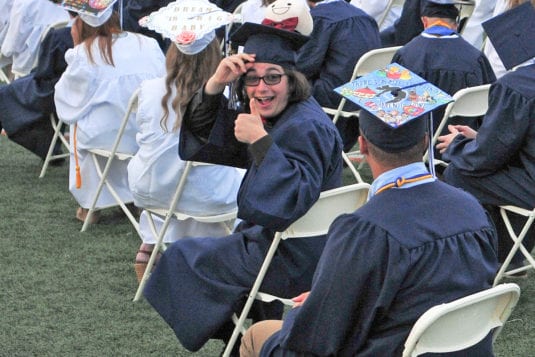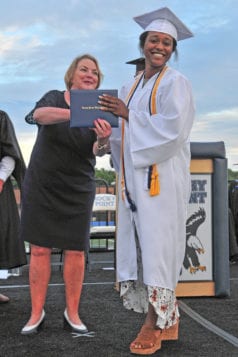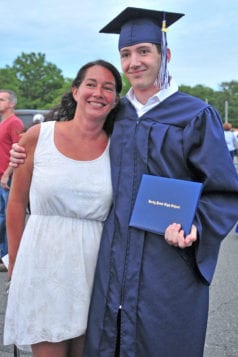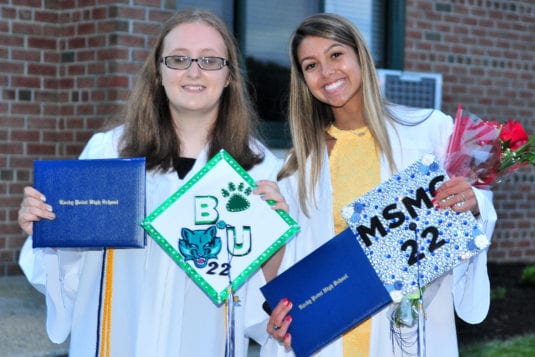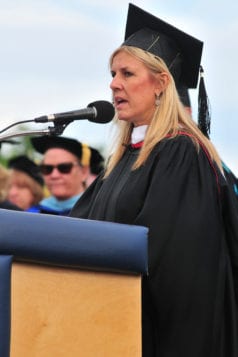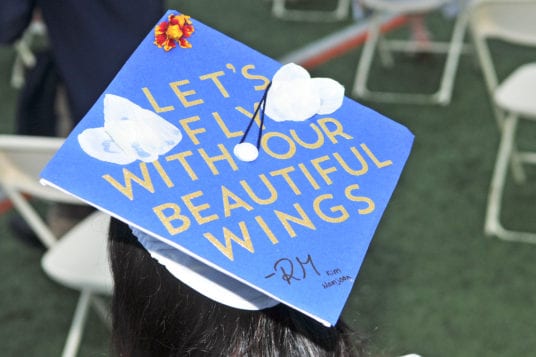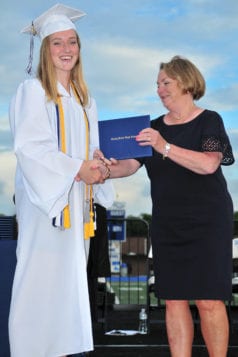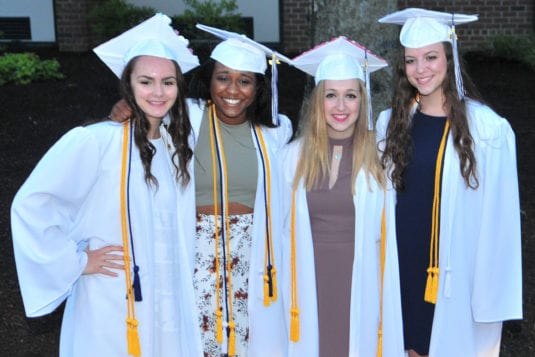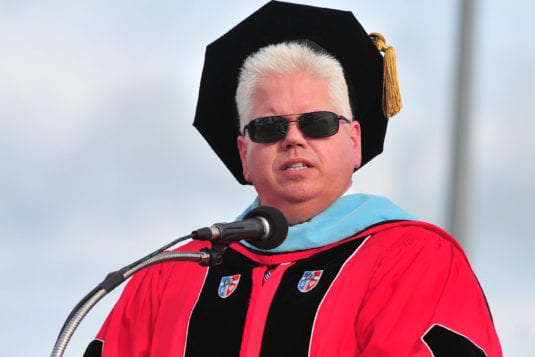By Daniel Dunaief

Tis the season for the opposite of schadenfreude.
Schadenfreude, as you may know, suggests happiness at someone else’s misery. Not being a German speaker, I understand that “schaden” means “damage” or “harm” and “freude” means “joy,” or, if you prefer, is the last name of the founder of psychoanalysis, which, I guess, is either supposed to make you happy or more self aware, coupled with an “e” at the end to make it harder to spell, so that you can feel schadenfreude when someone misspells the word.
So, why, in an era when so many others are so happy to enjoy the misery of those on the other end of an ideological spectrum, is it the era of the opposite of schadenfreude?
Well, look around! You might notice people in caps and gowns, completing their journeys through an educational curriculum strewn with considerably more obstacles than most four-year periods, starting with the dislocation caused by Covid.
Students couldn’t meet their classmates, except on zoom, skype or social media. They got to know each other through the facial expressions they could see online or through the images on their screens, as some of their professors’ children played with LEGOs, their cats climbed across keyboards, or their neighbors took their daily jogs in neon colors.
These graduates endured dislocation, loneliness, and, in some cases, prolonged exposure to family members whose watchful eye and judgment they thought they were finally escaping. They remained trapped in the family fishbowl.
Uncertainty, which is, admittedly, part of life, became even greater, as they didn’t know when they could go back to normal. When, they wondered, could they take a brief nap in a biochemistry class while a professor described reactions on an overhead projector in a slightly dimmed room?
For a while, they couldn’t chat with people on the way to the dining hall or at a party or mixer, they couldn’t compare the challenges of helicopter parenting and they couldn’t wonder what it would be like to leave their home country, travel thousands of miles away, and only speak to their parents once or twice a month.
And then, slowly, the fog of the pandemic lifted, giving them a chance to see each other in person, to listen to the questions others asked, and to have those moments when they could teach or learn outside of class while enjoying a late-night pizza.
Yes, these are remarkable high school, college, graduate school and night school students. We can and should be happy for them, celebrating their resilience and determination. They learned to multitask and adapt in ways most graduates don’t endure.
As we clap for them, we might need to fight the urge to wonder “what about me?” Or, perhaps, to think “What was hard about school when I went?” or, if perhaps “I could have been a doctor, except for the science part.” (Thanks to Woody Harrelson in the movie “Doc Hollywood” for that line).
Yes, you had challenges, but this day and time isn’t about you. It’s about these students who not only graduated, but will also contribute to the world, realizing their dreams, the goals of their parents and/or grandparents, and their communities, who need professionals in a range of fields to contribute to society.
This is our time to shine as a part of a support system, to acknowledge, to admire, and to elevate those who will likely encounter future difficulties, knowing that they already triumphed under extreme circumstances.
Oh, and if you crave schadenfreude, people have seized on numerous other outlets for their free-floating frustrations, laughing at the disappointed voters whose candidates are no longer in the race or who seem poised for an agonizing defeat.
Graduations, however, are not a zero sum game, where you win and I lose or I win and you lose. We all win when these graduates design beautiful homes that raise the property value in our neighborhood, when they help us with legal challenges, and when they hold our hands and provide medical guidance during future health threats.
Let’s hold back on our urge to pinch them in their pictures, to put them in their place when they seem happy with themselves, or to talk about ourselves instead of them, and let’s admire them for their pothole-filled journey and wish them well in the days, months and years ahead.


